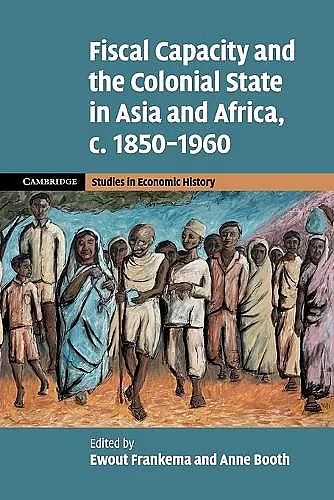Fiscal Capacity and the Colonial State in Asia and Africa, c.1850–1960
Anne Booth editor Ewout Frankema editor
Format:Paperback
Publisher:Cambridge University Press
Published:29th Sep '22
Currently unavailable, and unfortunately no date known when it will be back

How colonial governments in Asia and Africa financed their activities and why fiscal systems varied across colonies reveals the nature and long-term effects of colonial rule.
Through the lens of fiscal capacity building, a team of leading historians provides a comparative overview of how colonial states set up their administrative systems in operations that involved local people and elites. This sheds light on the political economic context of colonial state formation, and the long-term effects of colonial rule.This book examines the evolution of fiscal capacity in the context of colonial state formation and the changing world order between 1850 and 1960. Until the early nineteenth century, European colonial control over Asia and Africa was largely confined to coastal and island settlements, which functioned as little more than trading posts. The officials running these settlements had neither the resources nor the need to develop new fiscal instruments. With the expansion of imperialism, the costs of maintaining colonies rose. Home governments, reluctant to place the financial burden of imperial expansion on metropolitan taxpayers, pressed colonial governments to become fiscally self-supporting. A team of leading historians provides a comparative overview of how colonial states set up their administrative systems and how these regimes involved local people and elites. They shed new light on the political economy of colonial state formation and the institutional legacies they left behind at independence.
ISBN: 9781108714297
Dimensions: 230mm x 151mm x 17mm
Weight: 480g
319 pages